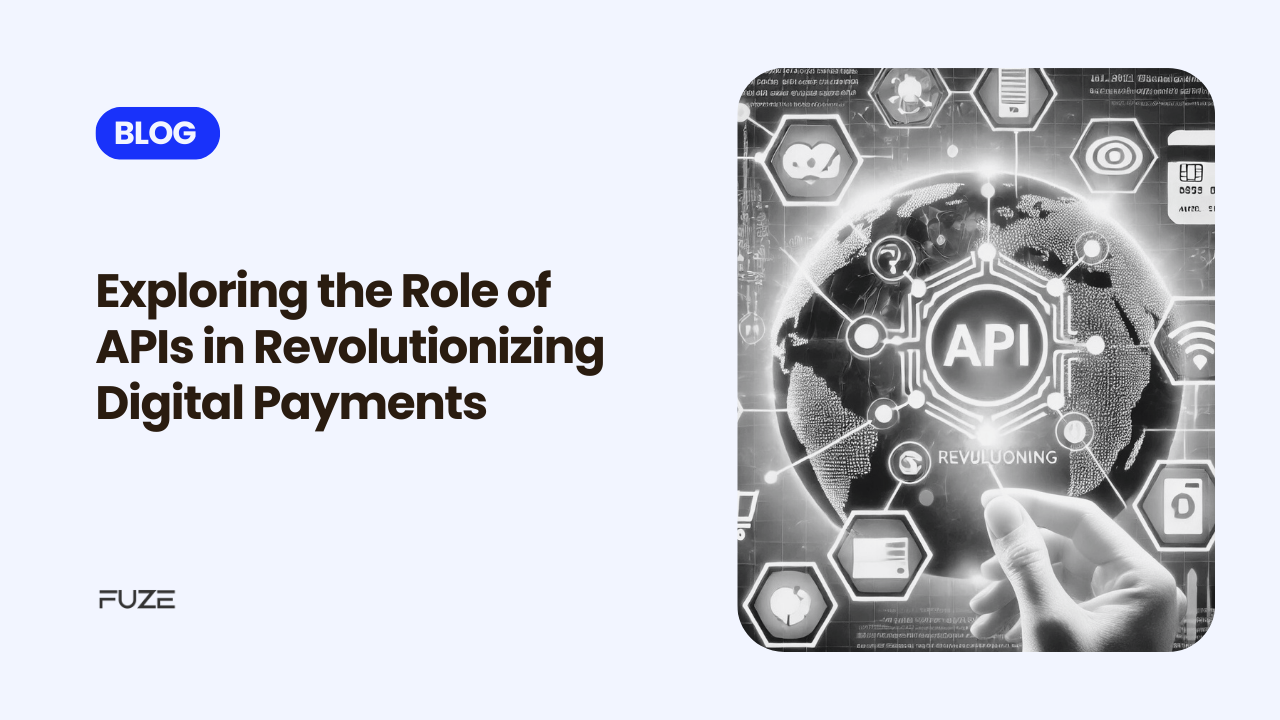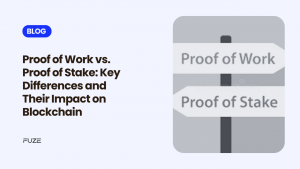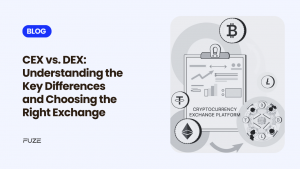The rapid evolution of digital payments has brought both challenges and opportunities for businesses, financial institutions, and developers. Among the most transformative enablers of this change are Application Programming Interfaces, or APIs. Payment APIs are the foundational tools for streamlining financial transactions. They enable seamless integrations, innovative solutions, and enhance customer experiences. It details how APIs are increasingly being incorporated into digital payments and demonstrates ways of empowering developers and businesses using an example, specifically the APIs-based capacities of Fuze.
Emergence of API-Driven Payment Platform
In today’s interconnected economy, APIs act as the glue that binds disparate systems together. They enable communication between software components, allowing for the transfer of payment data, authentication processes, and real-time settlements.
For developers, APIs represent a bridge to robust payment infrastructure without the need to build complex systems from scratch. Businesses, on the other hand, leverage APIs to customize and scale their payment solutions, ensuring they stay competitive in a fast-paced market.
Key Benefits of Payment APIs for Developers and Businesses
- Seamless Integration
APIs make it easy to integrate payment gateways into websites, apps, or enterprise systems. Developers can easily deploy payment solutions that are specific to a business’s needs, thus reducing time-to-market and operational complexity.
- Global Payment Support
With APIs, businesses can support multiple currencies, payment methods, and geographies. This capability is critical for companies looking to expand into international markets while maintaining a localized customer experience.
- Scalability and Flexibility
Payment APIs enable businesses to scale their solutions as they grow. From handling increased transaction volumes to integrating new payment methods, APIs make it easy to adapt without overhauling existing systems.
- Enhanced Security and Compliance
Modern payment APIs are designed with security at their core. They support encryption, tokenization, and compliance with global payment standards like PCI DSS, ensuring secure transactions and protecting sensitive data.
- Customization and Innovation
APIs empower developers to build unique payment experiences, integrating features like one-click payments, recurring billing, or embedded wallets. This customization fosters innovation, enabling businesses to differentiate themselves in competitive markets.
Use Cases of API-Driven Payment Solutions
- E-Commerce Platforms
APIs enable online retailers to offer diverse payment methods, support global transactions, and provide frictionless checkout experiences, all crucial for driving conversions.
- Subscription Services
APIs make recurring billing pretty easy, as they’ll automatically manage payment schedules, reminders, and renewals while keeping track of customer data securely.
- Fintech Applications
Digital wallets, peer-to-peer transfers, and other complex applications-are driven by APIs. They enable developers to add cutting-edge payment functionalities without building systems from the ground up.
- B2B Transactions
APIs streamline complex B2B payments, facilitating faster invoicing, cross-border transactions, and reconciliation processes. Businesses can also integrate APIs into their ERP or CRM systems for a unified financial workflow.
How Fuze’s Payment APIs Empower Developers
At Fuze, we understand that APIs are a vital aspect of digital payments, and their future. Our API-first approach ensures developers and businesses get flexible, secure, and scalable solutions for their payment needs. Here’s how Fuze’s payment APIs stand out:
- Comprehensive Documentation
Fuze is known for its comprehensive API documentation, which helps developers with rapid integration and testing functionalities.
- Multi-Currency Support
Support for a wide range of currencies and payment methods is offered in our APIs, which enables processing of cross-border transactions seamlessly.
- Real-Time Processing
Fuze’s APIs ensure instant payment confirmation and settlement, enhancing the user experience and reducing operation delay.
- Customizable Solutions
Fuze’s APIs are highly customizable, allowing businesses to create customized payment workflows that meet their unique operational needs.
- Developer-Friendly Tools
Our APIs make complex payment scenarios simpler so teams can focus more on innovation than on infrastructure.
API-Driven Payments Trends of Future
The digital payments landscape keeps evolving with the emergence of new features. Some of the key trends of future are described below:
Embedded Finance: APIs will drive the future of financial services, embedding payment functionalities into non-financial platforms, such as e-commerce sites or payment apps.
Blockchain and Crypto Payments: APIs will pave the way for seamless integration of blockchain-based payments, including cryptocurrencies and tokenized assets.
AI-Powered Payments: Artificial intelligence will work in conjunction with APIs to improve fraud detection, dynamic pricing, and personalized payment experiences.
Conclusion
APIs are revolutionizing the digital payment space; they allow businesses to innovate, scale, and thrive in a competitive market. They hold the key to unlocking the powerful payment functionalities for developers without the hassle of complicated infrastructure.
At Fuze, we’re committed to enabling businesses and developers with innovative, cutting-edge API solutions. Check out how Fuze’s payment APIs can help you build the future of payments—reach out to us today to get started.
Disclaimer: Virtual assets carry significant risks, including high volatility and potential loss of your entire investment. They are not backed by governmental protections, and recourse may be limited in case of loss. Always assess your risk tolerance, fully understand the risks, and seek independent financial advice if needed before investing.
Frequently Asked Questions
1. What role do APIs play in B2B transactions?
APIs enable businesses to automate invoicing, streamline cross-border payments, and manage recurring transactions, improving operational efficiency and reducing costs.
2. What are the challenges of integrating Payment APIs?
Common challenges include ensuring API compatibility with existing systems, maintaining compliance with regional regulations, and addressing potential latency or downtime issues.
3. How do API-driven payment platforms differ from traditional systems?
API-driven platforms provide a more modular and scalable approach to payments, allowing for real-time updates, enhanced customization, and integration with emerging technologies like blockchain.
4. How does Fuze’s API empower businesses in digital payments?
Fuze’s APIs provide customizable solutions for businesses, enabling seamless integration of multi-currency payments, fraud prevention tools, and analytics into their platforms.
5. What is the future of APIs in digital payments?
APIs are expected to drive innovation in areas like decentralized finance (DeFi), real-time payment networks, AI-driven fraud detection, and seamless integration with IoT and smart devices.







